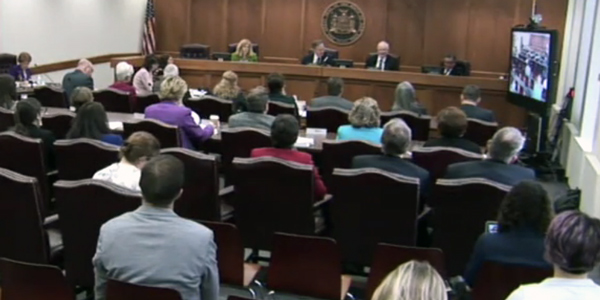By Michael Kuser
The New York Public Service Commission on Thursday approved a seven-year tariff for Consolidated Edison’s electric vehicle quick-charging station program (17-E-0814).
Under the tariff, the utility will expand the scope of its economic development Business Incentive Rate (BIR) to be available to owners of EV quick-charging stations with a minimum aggregate charging capacity of 100 kW and a maximum aggregate demand of 2,000 kW in New York City and Westchester County. The program could support more than 85,000 EVs by the end of the seven-year program, the company said.
“The city already indicated the program will complement its efforts in increasing access to quick-charging infrastructure,” said Department of Public Service staffer Mary Ann Sorrentino.
The New York State Energy Research and Development Authority indicated that Con Ed’s program, coupled with NYSERDA’s incentives, will likely achieve the near-term economics necessary for greater uptake and installation of quick-charging stations, she said.
The New York City area was one of 17 metro areas selected for the first cycle of $250 million in spending on zero-emission vehicle infrastructure under the $2 billion Volkswagen settlement for violating the Clean Air Act.
The state expects to receive $127.7 million for air pollution mitigation projects, according to a Department of Environmental Conservation report.
Delaying implementation of the Con Ed EV program would result in decreased uptake and a missed opportunity to leverage the BIR to maximize new investment in the utility’s territory, Sorrentino said.
PSC Commissioner Diane Burman voted against the tariff filing, without prejudice.
“I think we’re oversimplifying the issues here,” Burman said. “I don’t understand how this is not in conflict with moving forward at this time. Are we saying that failure to act now is going to cause us to not be able to get the VW settlement monies in the New York City area? Because there’s nothing in the record to say that we need this for the VW settlement monies.”
Warren Myers, DPS director of regulatory economics, said, “This is a very specific program that, to me, is very consistent with all of our economic development flex-rate programs that have been around for years and years. This is a way, as Commissioner [Gregg] Sayre said, to try to attract load that otherwise would not come to the electric utility.”
The PSC on April 19 also instituted a proceeding (18-E-0138) to encourage greater penetration of EVs and related supply equipment, possibly through the solicitation of scalable pilot programs.
The new proceeding supports other state initiatives such as ChargeNY— Gov. Andrew Cuomo’s goal of installing 10,000 EV charging stations by 2021, up from 2,000 today.
As in the Con Ed charging station program, utilities will help design rates to incentivize off-peak charging and invest in EV infrastructure and related supply equipment. The commission will soon announce the stakeholder feedback schedule for the new initiative.
“This proceeding is important because we need a framework that will get this right in respect [to] the costs, the benefits and the issues for the distribution grid that arise out of the penetration of electric vehicles,” said PSC Chair John B. Rhodes.
More REV
The PSC also acted on other initiatives under the Reforming the Energy Vision strategy to lead on climate change: expanding the integration of energy storage systems onto the grid; approving an upstate community smart energy project; creating an online platform for data sharing among energy companies; and streamlining permitting for farmers using anaerobic digesters to produce electricity.
In the matter of the Value of Distributed Energy Resources initiative (15-E-0751), the commission ordered that distributed generation suppliers be allowed to connect energy storage projects up to 5 MW to distribution systems. In addition, the commission issued two orders (18-E-0018; 15-E-0557) to improve the standardized interconnection requirements application and contract process to allow developers to connect projects to the grid without undue delay.
“Our standardized interconnection requirement simply can’t stand still,” Sayre said. “Some of the changes in this item are necessary because of our orders on the Value of Distributed Energy Resources, some of them come out of the stakeholder process to improve the interconnection process, and still others are necessary to accommodate technological and market changes in areas like energy storage.”
The commission approved New York State Electric and Gas’ request to implement a pilot program of time-differentiated electric rate options, the Energy Smart Community project, which includes deploying advanced metering infrastructure to approximately 12,000 customers in Ithaca and the surrounding area.
The Utility Energy Registry approved by the PSC will make load data for the major utilities available for local planning, market research and community choice aggregation development, without providing individuals’ consumption profiles.
The commission also ordered that community distributed generation (CDG) projects serving only farm customers no longer be required to comply with several CDG program requirements, including the 10-member minimum.
Rhodes closed the session by reading a resolution of appreciation for DPS Chief of Electric Rates and Tariffs Michael Twergo, who is retiring after 32 years of service.








